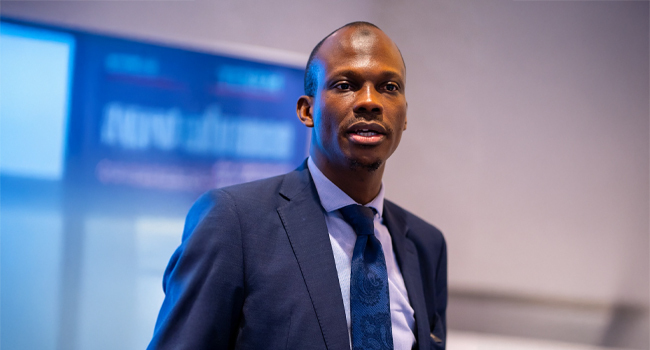 As the world observes World Diabetes Awareness Month and commemorates World Diabetes Day on November 14, Africa stands at the forefront of a growing health emergency.
As the world observes World Diabetes Awareness Month and commemorates World Diabetes Day on November 14, Africa stands at the forefront of a growing health emergency.
Non-communicable diseases (NCDs), such as diabetes, are escalating across the continent, driven by rapid urbanisation, sedentary lifestyles and unhealthy dietary habits.
The Executive Vice-President for Diagnostics, Africa at Roche Diagnostics, Dr. Allan Pamba, emphasised the staggering statistics, noting that 17 million people globally die prematurely from NCDs annually, with 86 per cent of these deaths occurring in low- and middle-income countries.
He said in Africa, diabetes, particularly Type 2 diabetes, is becoming one of the most pressing health challenges.
“Diabetes often lurks undetected, with more than half of the cases in Africa going undiagnosed. It’s a multidimensional condition with severe consequences, including heart disease, kidney failure, and vision loss,” Pamba explains.
He said, however, Type 2 diabetes is largely preventable, making lifestyle choices and early detection key to addressing the issue.
Pamba further emphasised that the rise in diabetes cases is fueled by sedentary lifestyles, unhealthy diets, and limited physical activity.
According to him, the increasing prevalence of fast food, often rich in unhealthy fats and sugars, is a growing concern in urban areas across Africa.
This trend, Pamba said, has seen childhood obesity rise dramatically, with projections indicating that 11% of African children aged 7–11 could be obese by 2025.
Pamba called for a return to basics, saying, “We need to make time for healthier choices—home-cooked meals, regular physical activity, and face-to-face connections with loved ones rather than endless hours in front of screens.”
He noted that early detection and effective management are critical, yet many African healthcare systems lack the resources for widespread screening, particularly in rural areas.
Pamba stressed that Rwanda’s National Diabetes Prevention and Control Programme is a notable success, screening over 200,000 individuals and strengthening healthcare systems through public-private partnerships.
He further stated that initiatives like Roche’s Changing Diabetes in Children programme are also making strides, supporting education, training healthcare workers, and establishing clinics across the continent.
According to him, these partnerships bring care closer to patients, particularly in remote areas, and integrate diagnostics into routine care.
“In the big picture, these partnerships are promoting an end-to-end approach to diabetes care that brings diagnostics closer to patients through decentralised point-of-care testing, connects them to ongoing support and provides chronic care to improve outcomes.
“Public-private partnerships and innovative funding models are making progress, taking testing and care to more people in remote areas. But as individuals, we can help the process along and significantly impact the statistics,” he stated.
The World Health Organization (WHO) has set ambitious targets for universal diabetes care by 2030, advocating for accessible diagnostics and self-monitoring systems.
Pamba said for Africa, achieving this vision requires a concerted effort from governments, healthcare providers, and individuals.
“Diabetes is a significant challenge but a manageable one. Through early diagnosis, lifestyle changes, and strengthened healthcare systems, we can empower people to take control of their health,” Pamba said.






